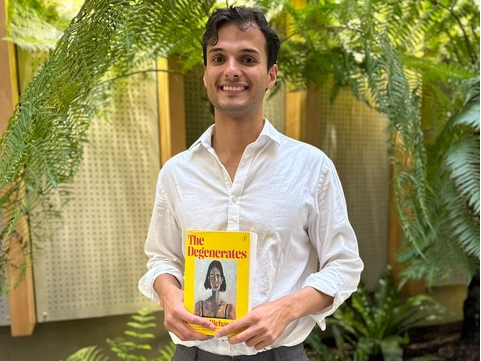Our Aims:
The Melbourne High School IT Council is committed to enhancing the school’s technological landscape. Our primary aims include:
- Empowering Students: We strive to empower students by fostering their interest in information technology, equipping them with relevant skills, and providing a platform for collaboration.
- Enhancing Digital Literacy: We aim to improve digital literacy among students, ensuring they are well-prepared for the digital age.
- Supporting the School Community: The IT Council actively supports the school community by providing tech assistance, education and organizing IT-related events.
Leadership Structure:
- The IT Council operates under a dynamic leadership structure:
- President: Responsible for overall coordination, strategic planning, and representing the council.
- Vice President: Assists the president and steps in when needed.
- Secretary: Keeps records of events, initiatives, and their progress.
- Co-conveners: Mentor the form representatives and assign tasks to complete initiatives.
- Form Representatives: Assist in ensuring that initiatives are completed to empower the MHS community.
Recent Initiatives:
The IT Council has been actively involved in several initiatives:
- Social Media Reels: We’ve started creating many reels for cool tech tricks and tips, follow our Instagram account to take full advantage! (watch out for our new YouTube channel coming soon)
- Infographic Posters: We have created very concise and useful posters on important technology topics that will be put around the school. Make sure to take a read!
- Year 9 IT Induction Program: The IT Council successfully conducted the 2024 year 9 IT Induction Program.
- Presentations to Staff: We have been working on presentations that will be presented to MHS staff during future staff meeting so that both students and teachers are able to take full advantage of technology.
- Analysis of School Events: We have worked closely with the MHS SRC to analyse major events like the 2024 senior social to ensure that we can improve future events for the MHS community.
- Articles in OURS: We intend to regularly post articles in the OURS newsletter on crucial topics such as proper usage of AI, cyber safety, usage of Office365 and many more.
- Guest Speakers & Workshops: We plan to host experts in the field of technology and are designing workshops to empower MHS students.
Join Us!
Are you passionate about technology? Interested in shaping the digital future of Melbourne High School? Join the IT Council and be part of an exciting journey! (applications for 2025 form representatives and cabinet members will be announced later in the year).
Stay tuned for more updates from the Melbourne High School IT Council!
AI usage at MHS
As technology continues to evolve, so does the integration of Artificial Intelligence (AI) into our daily lives. At Melbourne High School (MHS), we recognise the importance of responsible AI usage, and this is why AI is unblocked at our school and we promote such programs like Copilot and ChatGPT for instance to enhance our learning.
How can we use AI programs ethically?
The Australian Framework for Generative AI in Schools provides essential guidance for responsible and ethical AI use, and we are planning on using this framework as a basis for AI usage at MHS. Developed by the Department of Education, it aims to benefit students, schools, and society as a whole. Here are some fundamental principles from the framework:
- Transparency: Understand how AI algorithms work. Transparency builds trust and ensures responsible decision-making.
- Fairness: Regularly evaluate AI systems for bias. Ensure they do not discriminate based on race, gender, or other factors.
- Privacy: Safeguard personal data. AI should respect privacy rights and protect sensitive information.
- Education: Educate students about AI ethics and responsible use. Foster critical thinking and ethical decision-making.
- Collaboration: Involve students, teachers, and parents in shaping AI practices. Together, we create guidelines that promote fairness and inclusivity.
Practical Steps for Responsible AI Usage
- Setting Guidelines: Establish clear guidelines for AI usage within the school. These guidelines should address academic integrity, data privacy, and equitable access.
- Monitoring Usage: Regularly monitor AI tools and applications. Ensure they align with ethical standards and enhance learning outcomes.
- Addressing Bias: Be vigilant about bias in AI systems. Regularly assess and adjust algorithms to minimize any discriminatory impact.
- Educating Students: Integrate AI education into the curriculum. Teach students about responsible AI use, emphasizing its positive impact.
- Promoting Fairness: AI should not perpetuate existing inequalities. Use it to level the playing field and provide equal opportunities for all.
Common issues with AI usage and alternative approaches
Let’s discuss a common misuse of AI: inserting a prompt, hitting enter, and copying and pasting the results. This approach not only undermines the process of research but also reflects poorly on academic integrity. When AI is used merely to breeze through schoolwork, it crosses the line between genuine learning and shortcut-taking. However, there are ethical and effective strategies that students can adopt to leverage AI as a tool for enhancing their learning experiences, rather than treating it to effortlessly complete assignments.
Research Assistance: Use AI-powered search engines and databases to gather relevant and credible sources for research papers and projects. Of course, many AI programs like Copilot cites each source that it uses to gather information. Students can collect reliable information and cross-reference using numerous platforms and AI programs to ensure that research is conducted accurately.
Writing Support: Utilise AI tools for grammar and spell checks, style suggestions, and plagiarism detection to improve the quality of written assignments. This can especially help in the editing/review process after an assignment has been completed but can facilitate in any further changes to make increase the standard of schoolwork that much better.
Study Aids: Use AI-powered study apps or platforms that offer personalised study plans, flashcards, quizzes, and explanations to reinforce learning concepts. Many AI software including PDF2Anki offer such programs and Quizlet as well has the ability to convert notes into flashcards that can be used for thorough reviews of school material. The IT Council have also made an Instagram Reel on how to do this for completely free using ChatGPT and Anki on @mhs.it.council on Instagram.
These are just a few examples of how AI can be used ethically. Copying and pasting is simply a breach of MHS’ academic codes of conduct, so we hope to spread these guidelines to promote positive and effective uses of AI to ensure students can actually learn in the process of doing schoolwork.
At MHS, we believe that responsible AI usage is a collective effort. Let’s empower our students to be informed, ethical digital citizens. By embracing these principles, we can harness the power of AI while ensuring a positive impact on our school community.
Remember, AI is a tool—a powerful one. Let’s wield it responsibly and shape a brighter future for Melbourne High School
Divyanshu Sharma & Nate Oh
President & Vice-President of MHS ITC





